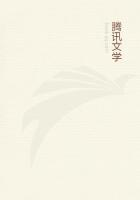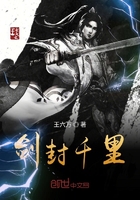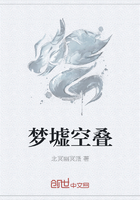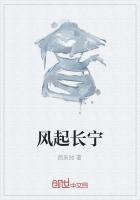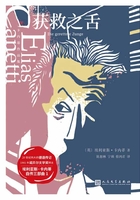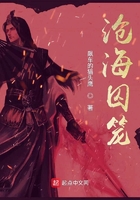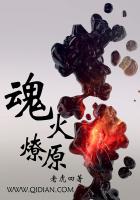To all this Don Quixote said in reply, "Children, senor, are portions of their parents' bowels, and therefore, be they good or bad, are to be loved as we love the souls that give us life; it is for the parents to guide them from infancy in the ways of virtue, propriety, and worthy Christian conduct, so that when grown up they may be the staff of their parents' old age, and the glory of their posterity; and to force them to study this or that science I do not think wise, though it may be no harm to persuade them; and when there is no need to study for the sake of pane lucrando, and it is the student's good fortune that heaven has given him parents who provide him with it, it would be my advice to them to let him pursue whatever science they may see him most inclined to; and though that of poetry is less useful than pleasurable, it is not one of those that bring discredit upon the possessor. Poetry, gentle sir, is, as I take it, like a tender young maiden of supreme beauty, to array, bedeck, and adorn whom is the task of several other maidens, who are all the rest of the sciences; and she must avail herself of the help of all, and all derive their lustre from her. But this maiden will not bear to be handled, nor dragged through the streets, nor exposed either at the corners of the market-places, or in the closets of palaces. She is the product of an Alchemy of such virtue that he who is able to practise it, will turn her into pure gold of inestimable worth. He that possesses her must keep her within bounds, not permitting her to break out in ribald satires or soulless sonnets. She must on no account be offered for sale, unless, indeed, it be in heroic poems, moving tragedies, or sprightly and ingenious comedies.
She must not be touched by the buffoons, nor by the ignorant vulgar, incapable of comprehending or appreciating her hidden treasures. And do not suppose, senor, that I apply the term vulgar here merely to plebeians and the lower orders; for everyone who is ignorant, be he lord or prince, may and should be included among the vulgar. He, then, who shall embrace and cultivate poetry under the conditions I have named, shall become famous, and his name honoured throughout all the civilised nations of the earth. And with regard to what you say, senor, of your son having no great opinion of Spanish poetry, I am inclined to think that he is not quite right there, and for this reason: the great poet Homer did not write in Latin, because he was a Greek, nor did Virgil write in Greek, because he was a Latin; in short, all the ancient poets wrote in the language they imbibed with their mother's milk, and never went in quest of foreign ones to express their sublime conceptions; and that being so, the usage should in justice extend to all nations, and the German poet should not be undervalued because he writes in his own language, nor the Castilian, nor even the Biscayan, for writing in his. But your son, senor, I suspect, is not prejudiced against Spanish poetry, but against those poets who are mere Spanish verse writers, without any knowledge of other languages or sciences to adorn and give life and vigour to their natural inspiration; and yet even in this he may be wrong; for, according to a true belief, a poet is born one; that is to say, the poet by nature comes forth a poet from his mother's womb; and following the bent that heaven has bestowed upon him, without the aid of study or art, he produces things that show how truly he spoke who said, 'Est Deus in nobis,' &c. At the same time, I say that the poet by nature who calls in art to his aid will be a far better poet, and will surpass him who tries to be one relying upon his knowledge of art alone. The reason is, that art does not surpass nature, but only brings it to perfection; and thus, nature combined with art, and art with nature, will produce a perfect poet. To bring my argument to a close, I would say then, gentle sir, let your son go on as his star leads him, for being so studious as he seems to be, and having already successfully surmounted the first step of the sciences, which is that of the languages, with their help he will by his own exertions reach the summit of polite literature, which so well becomes an independent gentleman, and adorns, honours, and distinguishes him, as much as the mitre does the bishop, or the gown the learned counsellor. If your son write satires reflecting on the honour of others, chide and correct him, and tear them up; but if he compose discourses in which he rebukes vice in general, in the style of Horace, and with elegance like his, commend him; for it is legitimate for a poet to write against envy and lash the envious in his verse, and the other vices too, provided he does not single out individuals; there are, however, poets who, for the sake of saying something spiteful, would run the risk of being banished to the coast of Pontus. If the poet be pure in his morals, he will be pure in his verses too; the pen is the tongue of the mind, and as the thought engendered there, so will be the things that it writes down. And when kings and princes observe this marvellous science of poetry in wise, virtuous, and thoughtful subjects, they honour, value, exalt them, and even crown them with the leaves of that tree which the thunderbolt strikes not, as if to show that they whose brows are honoured and adorned with such a crown are not to be assailed by anyone."
He of the green gaban was filled with astonishment at Don Quixote's argument, so much so that he began to abandon the notion he had taken up about his being crazy. But in the middle of the discourse, it being not very much to his taste, Sancho had turned aside out of the road to beg a little milk from some shepherds, who were milking their ewes hard by; and just as the gentleman, highly pleased, was about to renew the conversation, Don Quixote, raising his head, perceived a cart covered with royal flags coming along the road they were travelling; and persuaded that this must be some new adventure, he called aloud to Sancho to come and bring him his helmet. Sancho, hearing himself called, quitted the shepherds, and, prodding Dapple vigorously, came up to his master, to whom there fell a terrific and desperate adventure.

